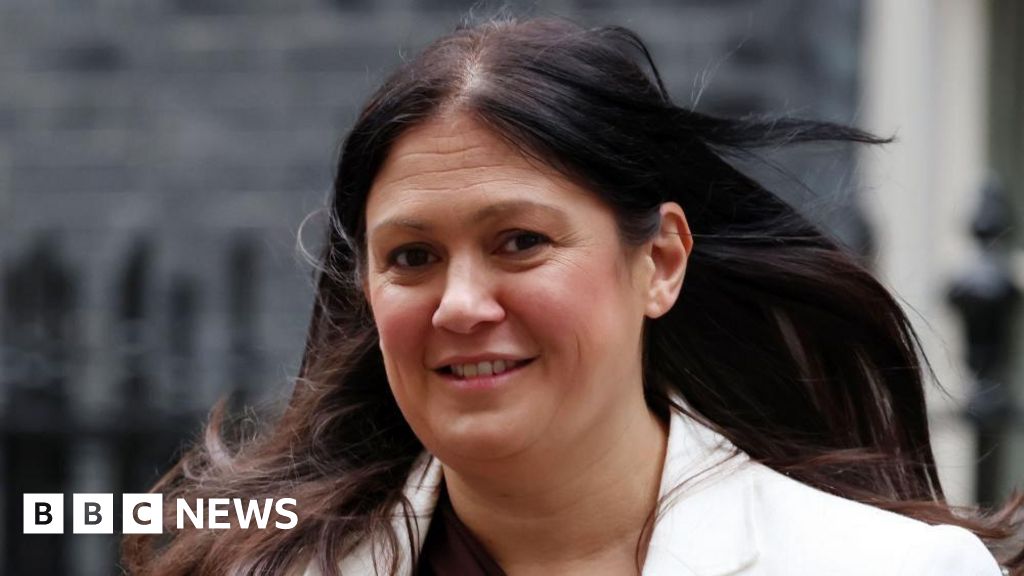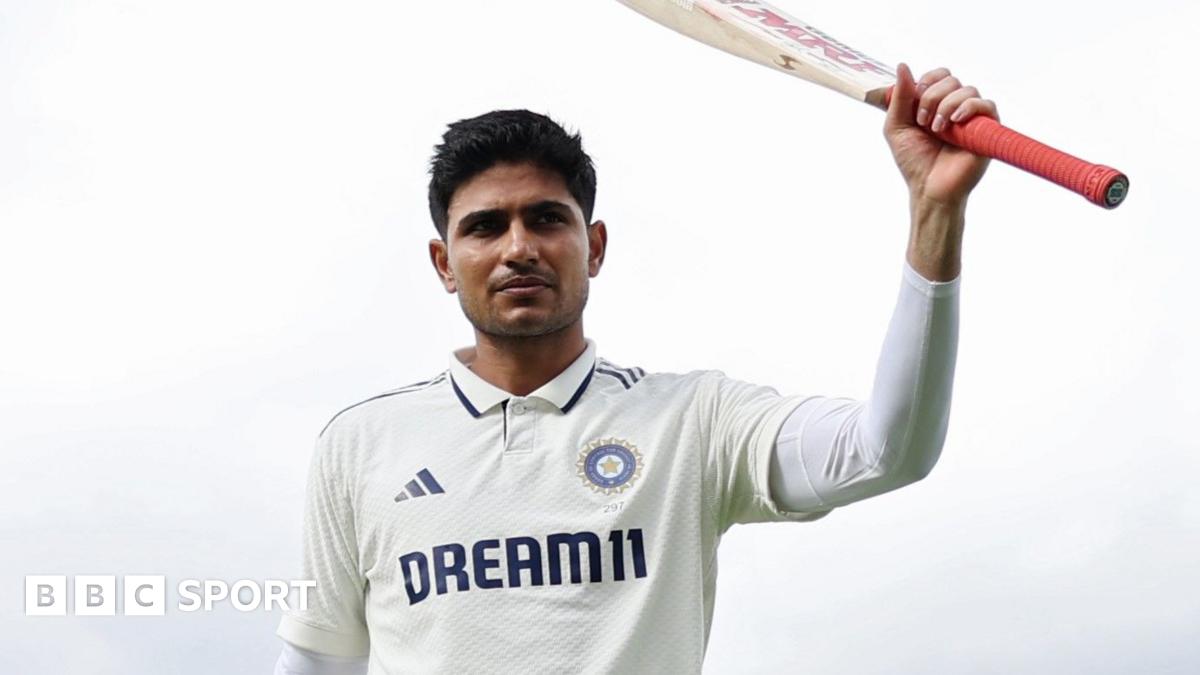HOUSTON — For 23 fleeting minutes here at NRG Stadium on Sunday night, the U.S. men's national team was back atop CONCACAF. It was beating Mexico, 1-0, in the Gold Cup final, and rising past expectations, toward a regional summit. But in the end, it succumbed to a better team — El Tri, which came back to win 2-1 and claim Mexico's 10th Gold Cup title.
Edson Álvarez's 77th-minute goal, awarded after a dramatic VAR review, was the difference.
An hour and a half earlier, before some of 70,925 fans here could even settle into their seats, the U.S. was ahead. Patrick Agyemang won a free kick on the right. Sebastian Berhalter whipped it into the box. Chris Richards hunted it, and nodded a world-class header over Mexican goalkeeper Luis Malagón, onto the crossbar, and narrowly over the line.
For a few tense seconds, players and fans alike froze, uncertain whether the ball had fully crossed the line. But the assistant referee raised his flag. The head referee, Mario Escobar, noticed it and whistled for a goal. Richards wheeled away in celebration, with a finger to his ear, as U.S. teammates erupted.
Advertisement
Replays weren’t definitive. CONCACAF, the regional soccer governing body that runs the Gold Cup, does not use goal-line technology, so the call was made by fallible humans on the field. Nonetheless, it was a goal, and the U.S. was buoyant.
Throughout a fascinating first half, though, Mexico’s quality began to show. Álvarez, 16-year-old Gilberto Mora and Marcel Ruíz began to run the show. The U.S. struggled to cope with their movement in midfield, and struggled to get out of its defensive shell when possession changed hands.
From Richards’ goal until first-half stoppage time, the Americans didn’t take a single shot. They hardly got into the final third.
And in the 27th minute, Ruíz unlocked the U.S. defense. He slipped into a pocket of space at the top of the penalty box. Tyler Adams got caught between him and Alexis Vega. U.S. right back Alex Freeman got caught in “no-man’s land,” and didn’t recover quick enough to Ruíz. Ruíz slid a clever reverse pass to Raúl Jiménez, who finished like the most accomplished player in the field — which he was.
The U.S. stabilized over the final 10 minutes of the first half. In fact, the Americans never truly lost their footing. They limited Mexico to very few legitimate looks at goal.
Advertisement
But they failed to create much of anything going forward. Several players showed their inexperience under the “pressure” and “stress” that head coach Mauricio Pochettino promised this game would bring. Adams, Luca de la Torre and Berhalter lacked composure and precision. Diego Luna was overwhelmed and invisible.
Similar patterns resumed in the second half. The USMNT, with no true wingers, offered essentially zero vertical threat. Mexico pushed, gently, for a go-ahead goal — and for a while couldn’t find one. Richards was dominant in the air and strong on the ground. In midfield as well, tackles began flying in. Adams was booked for crunching Álvarez.
But Álvarez got the last laugh, with his diving header off a flicked free kick.
When VAR overruled the assistant referee's offside call, the Mexican captain, and player of the tournament, sprinted half the length of the field toward green-clad fans behind the goal.
Advertisement
The U.S. searched for an equalizer, but didn't have the firepower to find one.
It had come a long way, from the brink of crisis to this final, but it couldn't quite clear the last — and tallest — hurdle.
A 77th-minute goal by Mexico captain Edson Álvarez was the difference in Sunday's Gold Cup final against the U.S. men's national team. (Photo by Robbie Jay Barratt - AMA/Getty Images)
(Robbie Jay Barratt - AMA via Getty Images)
USMNT settles for second-best
Less than four weeks ago, the Americans were reeling. Half their A-team was missing. The other half headlined a depleted, makeshift, MLS-heavy squad, which arrived at the Gold Cup hounded by critics. After a 4-0 capitulation to Switzerland, their fourth straight loss, “everyone basically counted us out,” defender Tim Ream later said.
In reality, they were still the second-favorites; but among a disillusioned fan base, and among former players, doubts rippled.
Advertisement
In the sanctity of locker rooms and meal rooms, though, on flights and training fields, throughout their last true tournament before the 2026 World Cup, they jelled. “We have become a family, become a team,” goalkeeper Matt Freese said on the eve of the final. Richards and others also used that word, family. Ream felt like he’d added “20 more kids” to his.
And together, they strolled through Group D. They scraped past Costa Rica in a quarterfinal shootout. They survived a Guatemalan scare in the semis. They never wowed with their soccer, but they won back a skeptical public. Over 3 million people tuned into their quarterfinal, and didn’t see Christian Pulisic or Weston McKennie; but did see Luna and a group of likable underdogs who, as Pochettino said, were “desperate” to “represent our country, and … fight for our flag, for our shirt.”
They came to Houston with some expectations already met. “I think there's been a lot of success this summer, with how the team's grown,” Richards said Saturday.
“But me personally,” he continued, “I like to win trophies — especially against Mexico.”
Advertisement
So they came with business unfinished. “We haven't proved what we want to prove yet,” Freese said. When Pochettino gathered players and staff before training this weekend, he recounted a trophy-lifting dream he’d had the night before. And he told them, per Freese: “We did not come here to be a second-place team.”
Their problem, though, was that they came with second-place talent.
They came with a six-game unbeaten streak against Mexico in official matches, but without Pulisic and McKennie, without Sergiño Dest and Antonee Robinson, without several architects of the streak, players who could equal Mexico’s Álvarez and Jiménez.
Advertisement
And besides: “Streaks are meant to be broken,” Jiménez said Saturday in Spanish. “And we think tomorrow is a great day for us to break [this one].”
Sure enough, they broke it.
They became the first team to successfully defend a Gold Cup title since their Mexican predecessors went back-to-back in 2009 and 2011.
They will head into North America's home World Cup next summer as the outright kings of the continent once again.
A blow-by-blow recap of the final is below.









 English (US) ·
English (US) ·